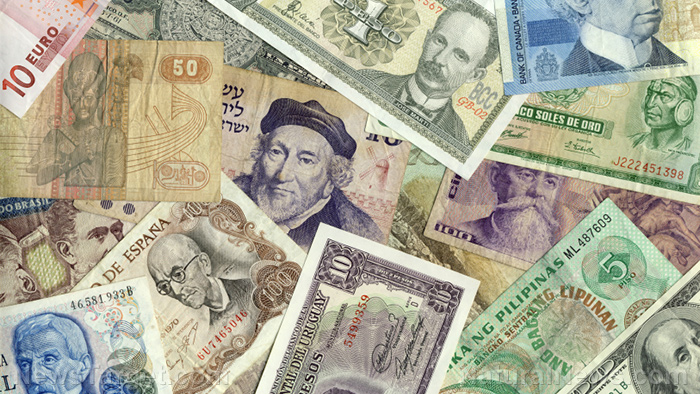 Parler
Parler Gab
Gab
FDA budget financed by Big Pharma continues to increase
For the FDA, the situation began in 1992. Congress, at the time overwhelmingly controlled by the Democratic Party, passed the Prescription Drug User Fee Act (PDUFA), allowing the Big Pharma industry to fund the FDA directly through "user fees" intended to support the cost of swiftly reviewing drug applications. This act single-handedly moved the FDA from a fully taxpayer-funded entity to one whose annual budget is heavily supplemented by Big Pharma money. Net PDUFA fees have increased 30-fold since 1993, when the FDA collected around $29 million. In 2016, the agency collected over $884 million. The collection of fees has become such a regular occurrence for the FDA that top FDA officials get behind closed doors every five years to negotiate how much money they will ask Big Pharma companies for product approvals. Last year, the agency settled on a number – $3 billion, which is nearly half of the FDA's annual budget. This money helps keep the agency afloat and 6,500 agency employees on the payroll. These "fees" taken from Big Pharma companies have become so dominant that in 2021, user fees accounted for $1.1 billion, or around three-quarters, of the FDA's drug division budget. The MHRA, EMA and other similar agencies around the world are experiencing similar situations, with industry money calling into question the great potential for corruption and collusion between Big Pharma and their respective governments. In 1995, industry fees accounted for 20 percent of EMA's budget. By 2010, that had risen to 75 percent. Today, it is nearly 90 percent. In the U.K., 86 percent of the MHRA's budget is derived from the drug industry. In Australia, 96 percent of the Therapeutic Goods Administration's budget came from the pharmaceutical industry, by far the highest proportion of all drug regulatory agencies investigated by The BMJ in a study. In Japan, 85 percent of the country's Pharmaceuticals and Medical Devices Agency's annual budget comes from the industry. At 50.5 percent, Regulator Health Canada had the lowest proportion of its budget coming from industry fees.Advocates call for end to user fees program
Advocates for patients and doctors say these kinds of agreements with Big Pharma have enabled the industry to weaken the approval process meant to ensure that drugs are actually safe and effective. "It's kind of like a devil's bargain that I think is not in the best interest of the agency," said Dr. Joseph Ross, a professor at the Yale School of Medicine and an expert on FDA policies. "It turns this every-five-year cycle into the FDA essentially asking the industry, 'What can we do to secure this money?'" Republican Sen. Richard Burr of North Carolina, ranking member of the Senate Committee on Health, Education, Labor and Pensions, noted that the user fees program is anti-small business. Negotiating with the FDA over fees, which he predicted would continue to increase, has limited the ability of smaller pharmaceutical companies to compete with industry giants. Nowadays, new drug application fees cost between $1.5 million to $3.1 million. "In a perfect world, I hope we would all be here lobbying that there are going to be no user fees paid to the FDA by anybody," said Burr during a Senate hearing. "Industry money saturates the globe's leading regulators," noted Demasi. "For decades, academics have raised questions about the influence funding has on regulatory decisions." Learn more about government collusion with corrupt Big Pharma companies at BigPharmaNews.com. Watch this clip from InfoWars featuring Dr. Paul Elias Alexander, a former White House medical advisor to former President Donald Trump, discussing how Big Pharma needs to be criminally prosecuted. This video is from the InfoWars channel on Brighteon.com.More related stories:
PHARMA FLASHBACK: Pfizer shelled out $2.3B to settle civil and criminal charges in 2009. NEVER FORGET: Pfizer manipulated studies to convince doctors to prescribe seizure drug Neurontin for off-label use. TWITTER FILES: Pfizer board member and former FDA commissioner Scott Gottlieb used Twitter lobyist embedded at White House to silence debate on COVID "vaccines." FDA "turned a blind eye" to "submission of fraudulent data" on COVID injections, investigator reveals. Researchers tell Dr. Jane Ruby: FDA, EMA, MHRA approved COVID-19 vaccines without seeing trial data – Brighteon.TV. Sources include: WorldFreedomAlliance.org NYTimes.com Medscape.co.uk Brighteon.comTop 5 causes of HEART ATTACKS you may not know about
By S.D. Wells // Share
By Arsenio Toledo // Share
Activists corner Pfizer CEO Albert Bourla, demand answers about deadly mRNA covid jabs
By Ethan Huff // Share
EAT BUGS AND BE HAPPY: EU authorities approve crickets, mealworms in food
By Ramon Tomey // Share
Expert warns: Zombie infection in “The Last of Us” not too far-fetched
By Belle Carter // Share
Governments continue to obscure COVID-19 vaccine data amid rising concerns over excess deaths
By patricklewis // Share
Tech giant Microsoft backs EXTINCTION with its support of carbon capture programs
By ramontomeydw // Share
Germany to resume arms exports to Israel despite repeated ceasefire violations
By isabelle // Share










